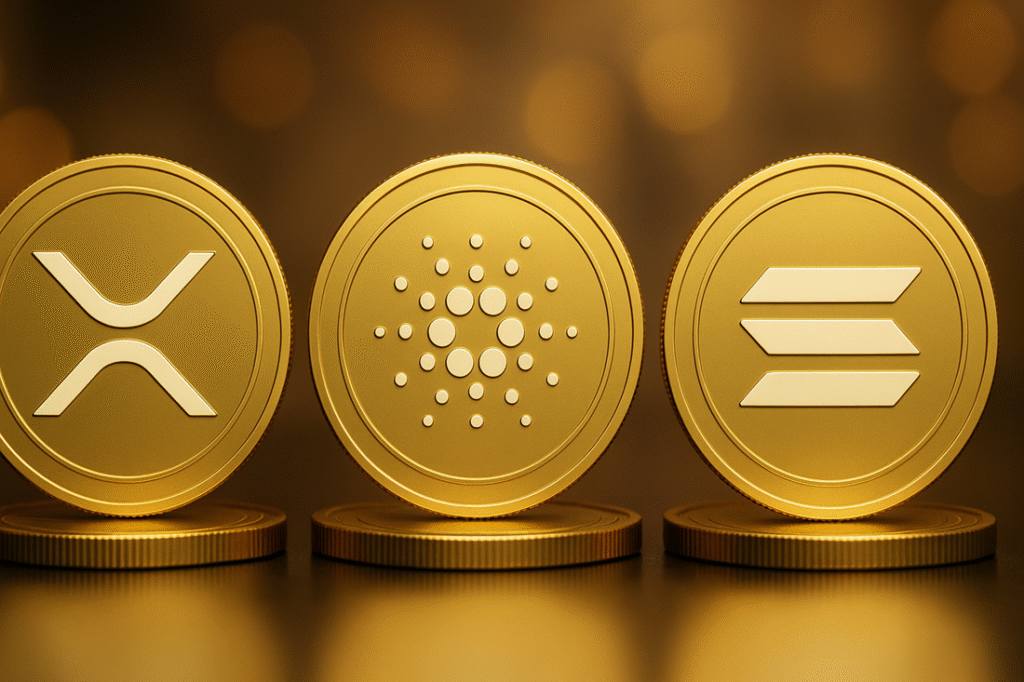As the cryptocurrency landscape continues to evolve, market participants are keenly observing developments that could reshape the investment horizon. One such pivotal moment is the potential transformation of Grayscale Investments’ Digital Large Cap Fund (GDLC) into an exchange-traded fund (ETF), a change that could pave the way for groundbreaking advancements in cryptocurrency investments. By including prominent digital assets like Bitcoin, Ethereum, XRP, Solana, and Cardano, this move signals a significant shift in how institutional investors might approach the digital currency market.
SEC’s Decision on Grayscale’s Digital Large Cap Fund: A New Era for Crypto ETFs
With the US Securities and Exchange Commission (SEC) nearing the conclusion of its review of Grayscale Investments’ proposal to convert their $760 million Digital Large Cap Fund into an ETF, the financial world is buzzing with anticipation. As noted by Nate Geraci, president of the ETF Store, there’s a strong possibility that the conversion will be approved. Geraci predicts that this approval will be a precursor to the introduction of individual spot ETFs for specific cryptocurrencies like XRP, Solana, and Cardano.
Exploring the Composition and Potential of GDLC
As of the end of June, GDLC’s asset composition includes 80.8% Bitcoin and 11.1% Ether, with XRP, Solana, and Cardano comprising a combined 8.1%. This configuration is strategically designed to mitigate regulatory concerns related to liquidity and market manipulation. Geraci emphasizes that the fund’s modest exposure to these altcoins allows the SEC to cautiously venture into broader cryptocurrency investments without significant risk.
Is the SEC Ready for XRP, SOL, and ADA ETFs?
The SEC’s incremental strategy aligns with its regulatory framework, which previously approved spot Bitcoin ETFs and later expanded to Ether. Geraci highlights the SEC’s willingness to adapt by allowing up to 15% of an ETF’s portfolio to include illiquid private-credit instruments, as long as stringent valuation and liquidity controls are in place. He argues that a similar approach could be taken for crypto assets beyond Bitcoin and Ether, making room for a 10% allocation without disrupting existing regulatory standards.
Regulatory Engagement and Approval Likelihood
Regulatory interactions appear to be intensifying as Grayscale has submitted an amended Form S-3 for GDLC, signaling active communication with the SEC. This document updates essential aspects like custody, creation-unit size, and index methodology, indicating thorough engagement and possible readiness for approval. Industry analysts like James Seyffart from Bloomberg Intelligence concur with Geraci, suggesting that the low non-Bitcoin and non-Ether exposure in GDLC might simplify the SEC’s decision-making process.
What Impact Could the Approval Have on the Crypto Market?
If the conversion is sanctioned, GDLC could become a pioneer in offering US investors regulated access to XRP, Solana, and Cardano, albeit in limited proportions. This development would not only allow broader participation in these cryptocurrencies but also furnish the SEC with valuable real-time trading data. This data could guide future decisions on launching standalone ETFs for these altcoins, anticipated as soon as 2025.
Will the GDLC Conversion Lead to Broader Cryptocurrency Adoption?
Approval of the GDLC conversion might catalyze greater acceptance of cryptocurrency ETFs, further integrating digital assets into mainstream financial markets. The success of such a fund could encourage additional regulatory frameworks that accommodate a wider range of cryptocurrencies, fostering a more inclusive investment environment.
What are the Next Steps for Investors Interested in GDLC?
Investors should remain informed about the SEC’s forthcoming decisions and consider the implications of GDLC’s conversion on their portfolios. Understanding the regulatory landscape and market dynamics will be crucial for making informed investment choices.
As the financial community awaits the SEC’s verdict, the approval of Grayscale’s Digital Large Cap Fund could mark a significant turning point in the realm of cryptocurrency ETFs. By carefully expanding the scope of regulated digital assets, the SEC could set the stage for a new era of innovation and opportunity in the financial sector.

